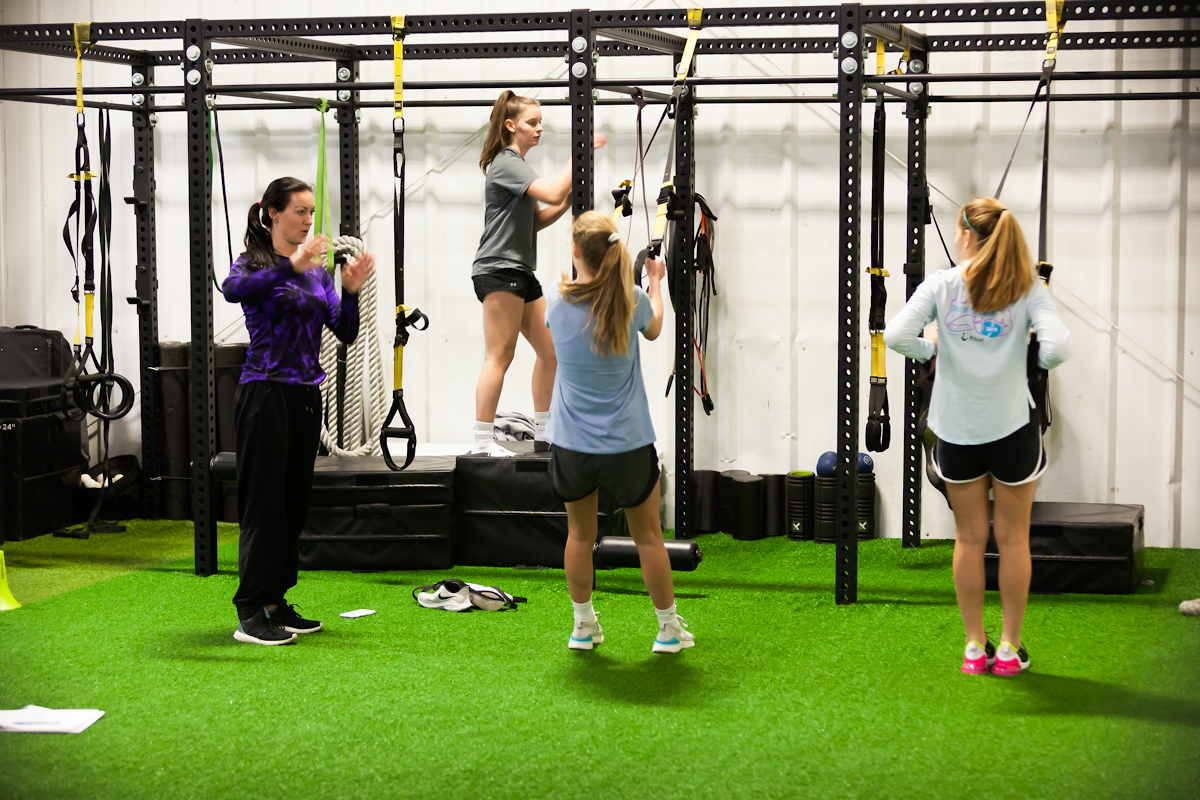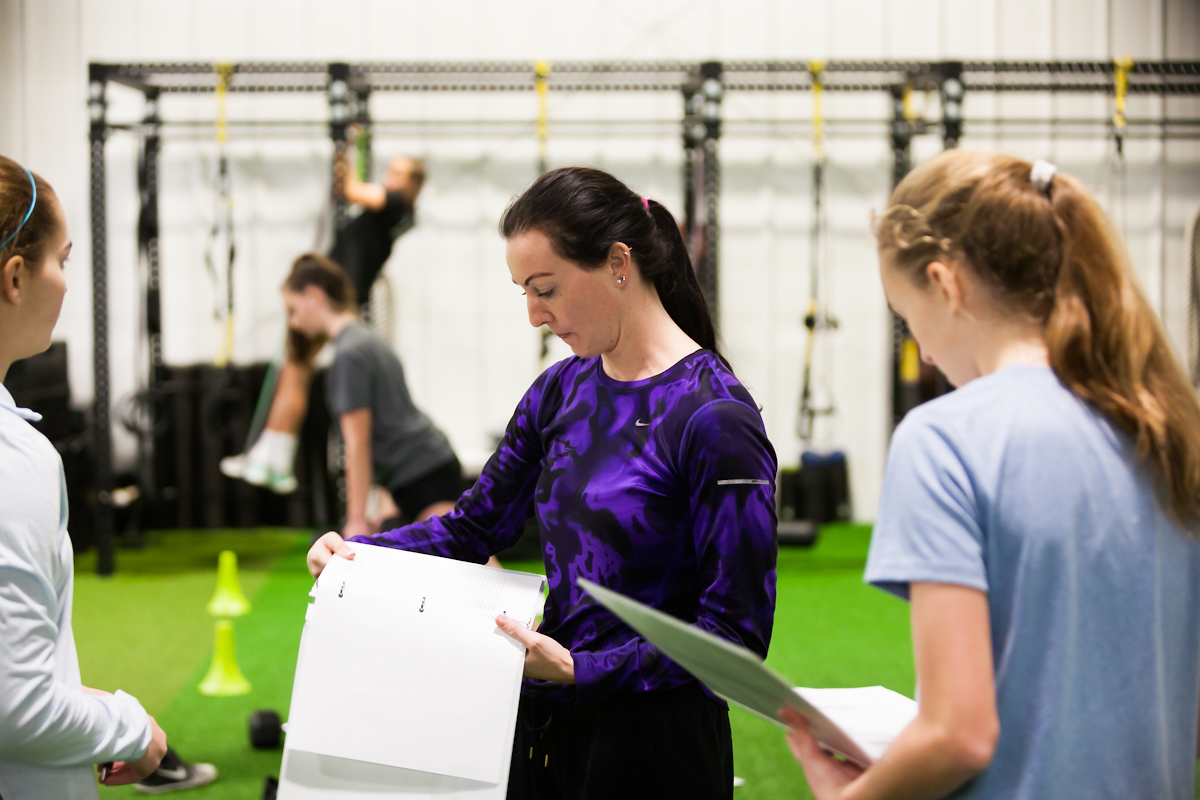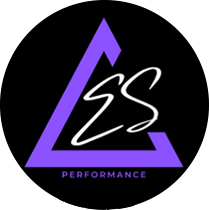
28 Jan How To Find An Amazing Youth Speed and Conditioning Coach For Your Kid
I like to compare youth speed and conditioning coaches to the evolution of ice cream flavors.
Back in the day, there was just vanilla, strawberry and chocolate.
Nowadays?
Ice cream flavors are so abundant, none of us can keep up.
There’s chocolate, chocolate chip cookie dough, double chocolate fudge, cookies n’ cream, strawberry, strawberry cheesecake, vanilla, vanilla peanut butter, mint chocolate chip.

And the same rolling menu of options goes for youth speed and conditioning coaches: there’s plenty to go around.
As overwhelming as this is, it also puts parents and kids in a position to choose the flavor of coach they love the most.
They don’t like the boring coach down the street? Cool. They can phone a coach who is out of state and work with them online.
They don’t like the coach in their town who tosses workouts together the moment athletes walk in the building? Cool. They can hire the coach next door who spends hours writing customized programs.
To that end, everyone can now be picky and meticulous in there pursuit to hire the right coach for their child’s needs, learning tendencies, motivational behaviors, and goals.
The world we live in now, though overwhelming, is so incredibly awesome because it puts the consumer in their power to double down on hiring who they truly want and need.

So with all of the flavors out there, how do you narrow it down to one amazing coach for your kid?
Before I dive in, I can’t tell you exactly who to hire. Of course, I have my opinions on what is optimal and what isn’t, but my goal of this article is to propel everyone to ask better questions.
In fact, I would recommend interrogating a potential coach relentlessly. After all, you’re putting your child’s growing, maturing body in their hands, so it’s a big decision.
Without further ado, here are several questions to ask a potential youth speed and conditioning coach:
1. How many athletes have you trained?
2. What age do you work with?
3. How do you track and measure load?
4. How do you quantify progress?
5. How do you customize your programs?
6. How do you program off-season, in-season and pre-season?
7. What do you do for recovery?
8. What is your culture?
9. What type’s of clients do you currently work with?
10. What is your education?
11. How do you train each age group differently?
12. How do you train around injury?
13. How soon will my kid see results?
14. Can you show me your social media or any videos of current athletes you train?
15. Are you a cat or dog person? <— because, science.
Of course, I could list many more questions, but start with these first.
Oh, and one caveat: education does matter to some extent, but sometimes, there are coaches who majored in something other than exercise science who are absolutely incredible at what they do, so be aware.
In addition, if a coach says they work with thousands of athletes, yet their social media doesn’t show any athletes or people they work with, big red flag.
Beyond these questions, here are some other things to consider when hiring a youth speed and conditioning coach:
– Low cost doesn’t always mean better.
– High cost is high, but it’s more about the value and quality of service delivered. Remember, you want someone who is educated about anatomy, exercise science and child development, and is meticulous in their approach with kids’ maturing bodies.
– If a trainer promises quick results, like faster speed in a month’s time, run. A quality trainer is honest about the process it takes for motor skill development, exercise adaptation and speed and strength building. It takes months and years of consistent effort.
– One time a week training: a quality trainer is honest with parents and kids that one time a week of training will not elicit the best results. Twice a week is a minimum for kids to truly learn skills like acceleration, speed, coordination, balance, and then be able to move onto developing strength and power.
– Age group differences: if a coach trains 8-year-olds the same way high schoolers, another red flag. These age groups have vastly different needs, learning styles, behaviors, mental and physical capabilities, psychological tendencies, so training shouldn’t be the same for all age groups.
8-year-old conditioning:
High school conditioning:
– After the first session, could you tell the coach was engaged? Did they tweak exercises based on the athlete’s needs? Did they bring the energy? Did they get picky with form, or did they allow goofing off? Make sure the entire session is quality coaching and focus.
– Quantifying results and tracking load are key. I mean, how else will you know if your child is getting faster, stronger and more powerful? <— this goes for middle school and up. No need for 8-year-old Combines.
So that’s that.
If you ask these questions, you’re more likely to find someone who understands your child’s needs, treats them with great care, and someone who will get your child where they need to go, both safely and effectively.
There’s a lot of flavors, so choose wisely.
For fun strength, agility and speed training drills for kids, get Total Youth Soccer Fitness HERE.
For speed and conditioning training in Baltimore, Maryland, Contact Me HERE.


No Comments